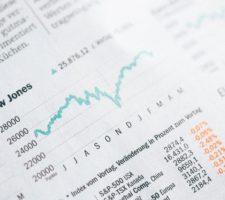When you start with currency trading, you can be easily confused with many different terms and abbreviations. Futures Vs Forex are one of the most confusing ones. Therefore we looked at both terms and tried to explain it for everyone. What do they have the same, and what are the differences.
What are Futures

Futures are the standardized financial instruments used for hedging and speculation. Futures are traded on regulated exchanges like CME, CBOT, LME, or EUREX.
The futures contract gives the buyer the obligation to purchase the underlying asset for a set price at the exact date in the future. Vice versa, the seller must sell.
Futures are derivatives, and their price depends on the movement of the underlying assets and other parameters like time to maturity, volatility, etc. Futures can be traded on every possible asset (currencies, commodities, interest rates, stock indexes, or individual stocks).
Every futures contract has its specifications set by the exchange. The specifications are:
– underlying asset (e.g., EUR/USD rate, Price of Corn or 3M USD LIBOR),
– contract unit (100 000 EUR, 5 000 bushels of Corn, or yield on 1 000 000 USD),
– the expiry date (last trading date),
– settlement or delivery date (day of delivery of underlying asset),
– minimum price movement, margin requirement.
Futures can be settled financially or by delivering the underlying asset. That can be interesting if you trade futures on commodities, and you must provide 5 000 bushels of corn to exchange warehouses.
Fortunately, futures can also be settled financially if you agree on it with your broker in advance. Another way how to avoid physical settlement of futures contracts is by closing the position before the expiry date.
What is Forex
Forex is the abbreviation for Foreign Exchange. It is a mostly unregulated market where you can exchange one currency for another.
The participants on forex are banks at the interbank level, corporations and retail investors, and speculators. They all do foreign exchanges for hedging or speculative reasons.
Spot, forward, swap, and options are instruments used on the forex market. The spot conversion is the most used instrument for speculation purposes.
Forwards and swaps are usually used for hedging purposes. Options are evenly used for both purposes.
Forward, one of the forex instruments is the most similar to the futures contract.
Regulations
There is a big difference between Forex and Futures in terms of regulations. Forex is still a largely unregulated market, but futures are highly regulated contracts.
On Forex, trading is done based on mutual contacts between participants. ISDA is the primary contract on interbank and corporate-bank level, the individual wording of contracts of various brokers governs the relationship on a retail level.
Futures are standardized contracts directed by regulation of exchange, where the contract is traded. Moreover, all trading on exchanges is supervised by national regulators like CFTC (Commodity Futures Trading Commission) in the USA.
Liquidity
Forex market is probably the most liquid market in the world. The spreads in typical situations are very narrow (less than one pip).
The reason for such high liquidity is the high number of participants with different interests. There is no problem to find a counterparty willing to take over your position.
Futures contracts, in general, are very liquid too. However, there are differences between the different futures contracts.
The liquidity of near-by futures (futures with the closest maturity) is much higher than the liquidity of futures with settlement in a more distant future. (3 Month Futures have higher liquidity than 6 Month Futures).
The liquidity is also dependent on an underlying asset. For example, the futures on EUR/USD is much more liquid than futures on Aluminum.
Variability
Comparing Futures Vs Forex is not very hard if you choose Forward as representative of the Forex market.
Futures are standardized contracts for an underlying asset where you know the amount and maturity when the contract will be settled. The exchange sets the contract amount and maturity.
Forwards for the same underlying asset can be traded on different maturity and amount. Counterparties choose maturity and amount.
Forward contracts on the forex market are more variable and give the market participants more possibilities.
Costs of Trading
Forex trading is a low-cost solution for hedging or speculation. Thanks to many participants, it is effortless to start trading currencies on the Forex market.
Brokers or banks do not charge you any fees if you sign the contract with one of them. You will trade on the market prices provided by your broker without an additional cost.
The only costs you will pay at forex are the discounts on rollover when you are holding the position overnight. However, the fees/discounts are hidden in the price of rollover.
You can trade futures just via a broker who is a member of the relevant exchange. Moreover, every trade is subject to fees from your broker and also from the exchange itself.
At futures exchanges, you need to follow the rules set by exchanges and regulators. Forex is freer for participants and always have a space for adjustment.
Margin requirements
Understanding leverage versus margin is the key to both futures trading and forex trading.
At futures exchange, you need to keep the initial margin and variable margin on your account. The initial margin needs to be maintained all time when you have an open position.
The variable margin is changing according to the price movements of your open positions. In case of loss on the open position you can be asked to deposit the additional margin to your account.
Forex trading also requires to keep a margin on your account. However, the requirements are much lower than with futures.
Basically, you can trade forex with $100 these days. On the other hand, starting with futures will require much higher initial investments (over $10 000).
Futures Vs Forex – The Summary
Generally, Futures Vs Forex comparison is wrong on the basis. Futures and Forex are two different “species.”
Forex is market. Futures are instruments.
Forex is the term for a broad market where you can speculate or hedge the currency prices. Futures are standardized instruments used for hedging or speculation traded on exchanges.
If you want to trade currencies, you can choose between trading futures on currencies or entering the forex market. However, the barriers to entry and costs are much lower in the forex market.
On the other hand, futures trading and exchanges are subject to regulations by national authorities. Therefore, you are in a better position in terms of security from frauds and inside trading.


